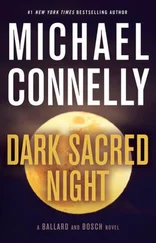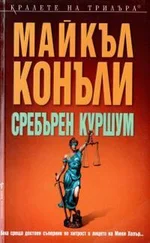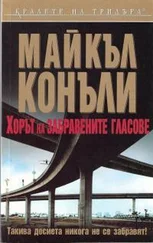“Yeah, neat. That’s why you called? That’s the gift?”
“No, the gift is this: Our father died young — in fact, I never saw him in a courtroom — but he had a young partner who carried on, and that’s the guy I used to go watch at the CCB.”
“You’re talking about David Siegel? He was the partner?”
“That’s right. And he defended Preston Borders in that trial in nineteen eighty-eight. I grew up calling him Uncle David. He was a great lawyer and they called him Legal Siegel around the courthouse. He’s the one who sent me to law school.”
“What happened to his practice? Do you think there are any records still around from the trial? They might be useful.”
“You see, that’s my gift to you, my brother. You don’t need records; you’ve got Legal Siegel.”
“What are you talking about? He’s dead. There’s an obit in the file — I read it last night.”
Bosch had to wait at the crossing a block from the station for a Metro train to go screaming through. Haller heard it over the phone and waited for silence before responding.
“Let me tell you a story,” he said. “When he retired from the practice of law, Legal Siegel did not want to be found by any of the, let’s say, unsavory clients he represented over the years, especially those who might not have been pleased with the outcome of their interaction.”
“He didn’t want guys getting out of prison and looking him up,” Bosch said. “Geez, I wonder why.”
“I’ve had the experience myself and it’s not pleasant. So Legal Siegel sold his practice and pulled a disappearing act. He even had one of his sons send an obituary of his own creation to the newsletter of the California bar. I remember reading it. It called him a legal genius.”
“That’s what I read. Soto and Tapscott put it in the file because they said Siegel was dead. You’re telling me he’s still alive?”
“He’s going on eighty-six years old and I try to visit him every few weeks or so.”
Bosch pulled into a parking space in the SFPD’s side lot. He checked the dash clock and saw he was late. The personal cars of all the other detectives were already there.
“I need to talk to him,” he said. “In the new files, Borders throws him under the bus. He’s not going to like that.”
“I’m sure he won’t,” Haller said. “But that’s a good break for you. If you impugn the reputation of a lawyer, he’s allowed to fight back. I’ll set up an interview and we’ll record it. What’s your availability going to be?”
“The sooner the better. You said he was pushing eighty-six. Is he all there?”
“Absolutely. Sharp as a stiletto mentally. Physically, not so much. He’s bedridden. They move him around in a wheelchair. Bring him a sandwich from Langer’s or Philippe’s and he’ll go on a nostalgic bender about old cases. That’s what I do. I love to hear him talk cases.”
“All right, set it up and let me know.”
“I’m on it.”
Bosch killed the engine and opened the Jeep’s door. He quickly tried to remember if there was anything else he needed to ask Haller.
“Oh, one other thing,” he said. “You remember at Christmas when we got those bottles of bourbon from Vibiana at the Fruit Box Foundation?”
Vibiana Veracruz was an artist both Haller and Bosch had encountered on a private case they had worked the year before.
“Happy Pappy, yes, I do,” Haller said.
“I remember you offered me a hundred bucks for mine,” Bosch said. “I almost took it.”
“Offer still stands. Unless you finished that sucker off.”
“No, I didn’t even crack it open until last night. And that’s when I found out I could’ve gotten about twenty times what you offered.”
“Really?”
“Yeah, really. You’re a scoundrel, Haller. Just wanted you to know I’m onto you.”
Bosch could hear Haller chuckling at the other end of the line.
“Laugh it up,” Bosch said. “But I’m keeping it.”
“Hey, there are no morals and no ethics when it comes to choice Kentucky bourbon,” Haller said. “Especially Pappy Van Winkle.”
“I’m going to remember that.”
“You do that. Talk to you later.”
The call ended and Bosch went in the side door to the station. He walked through the empty detective bureau and opened the door to the war room. He was immediately hit with the fresh smell of breakfast burritos.
It was a full house. Sitting around the table and eating were Lourdes, Sisto, Luzon, Captain Trevino, and Chief Valdez. Jerry Edgar was also in attendance with a man Bosch had never seen before. He was late thirties with dark hair and a deep tan. He wore a golf shirt with sleeves tight on his expanded biceps.
“Sorry I’m late,” Bosch said. “I didn’t know it was going to be all hands on deck.”
“We were eating while waiting,” Lourdes said. “Harry, this is Agent Hovan from the DEA.”
The man with the tight sleeves stood up and reached across the table to shake Bosch’s hand. As he did so, he assessed Bosch the way an art critic might look the first time at a sculpture, or a college football coach at a high school cornerback.
After freeing his hand from Hovan’s grip, Bosch pulled out a chair at the end of the table and sat down. Lourdes picked up the tray of breakfast burritos and offered to pass it down but Bosch put up his hand and shook his head.
“So,” he said. “Agent Hovan, what brings you here first thing this morning?”
“You called, I wanted to respond,” Hovan said. “Since it was Jerry who referred me to you, I spoke with him yesterday about you and the case and thought it would be best if we all met in person.”
“To brief us all on Santos?” Bosch asked.
Before Hovan answered, the chief spoke up.
“Agent Hovan came in to see me first thing this morning,” he said. “He’s going to brief us all, but he also has a couple ideas about our investigation.”
“ Our investigation,” Bosch said.
“Harry, don’t get ruffled,” Valdez said. “It’s not what you think. Just hear the man out.”
“I think Harry’s right,” Sisto said. “When the feds come in, they come in to take things over. This is our case.”
“Could we just give him a chance to talk?” the chief insisted.
Bosch made a gesture, giving Hovan the go-ahead, but he admired Sisto for standing up.
“Okay, I think I got the lay of the land from your chief and Jerry,” Hovan said. “You got the two-bagger and you’ve zeroed in on the clinic over in Pacoima. Today you were probably going to come in here, put your heads together, and decide to go small to get big. Am I right?”
“What does that mean?” Lourdes asked.
“You were going to pick off a pill shill or a capper and start trading up, right?” Hovan said. “It’s how it usually works.”
“And that’s a problem?” Lourdes asked. “It’s usually the way it works because it’s what works.”
She glanced at Bosch to back her up.
“Yes, that was the plan,” Bosch said. “But I suppose the DEA has an alternate suggestion.”
“Correct,” Hovan said. “If you want to get the man who ordered the hit on that pharmacy, then you’re talking about Santos, and there ain’t nobody in the world who knows Santos and his operation like I do. And I can tell you, catching small fish to go after the big fish is not going to work.”
“Why is that?” Lourdes asked.
“Because the big fish is too insulated,” Hovan said. “Based on what I’ve been told about this case, I would say you have it right. Those two hitters were sent by Santos, but you’ll never make that connection. For all we know, those two are already dead and buried in the desert. Santos doesn’t take chances.”
Читать дальше
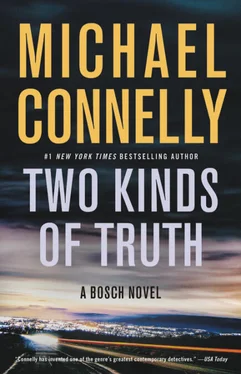




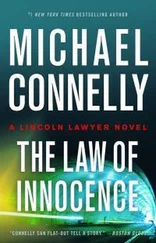
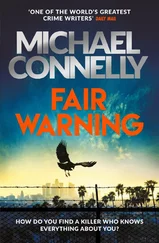
![Майкл Коннелли - The Night Fire [Harry Bosch - 22]](/books/405630/majkl-konnelli-the-night-fire-harry-bosch-22-thumb.webp)
